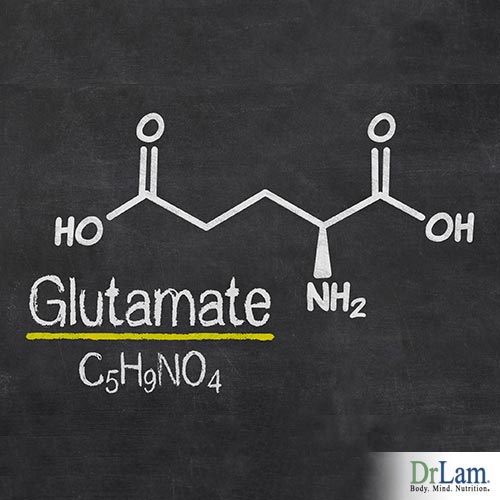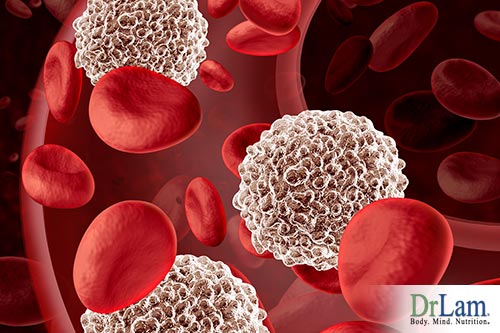 Glutamate sensitivity is a controversial topic that has proponents on both sides of the issue. Some researchers and a large number of alternative medicine practitioners believe there is a danger associated with sensitivity to this amino acid. On the other hand, there are a significant number of researchers and conventional medicine practitioners who point to studies that show this sensitivity to be relatively rare.
Glutamate sensitivity is a controversial topic that has proponents on both sides of the issue. Some researchers and a large number of alternative medicine practitioners believe there is a danger associated with sensitivity to this amino acid. On the other hand, there are a significant number of researchers and conventional medicine practitioners who point to studies that show this sensitivity to be relatively rare.
However, for those who are affected by sensitivity to this ingredient in many foods, more information is needed for them to safeguard their health better.
Glutamate is an amino acid and one of the most plentiful neurotransmitters in the brain. It is present only in small amounts, and it is the primary excitatory neurotransmitter. This means it stimulates neurons in the brain to transmit the chemical-electrical messages. It helps us talk, process information, think, learn new things, store new learning, and pay attention.
Some studies have indicated the more receptors for glutamate you have, the more intelligent you are. Large numbers of these receptors make it easier for you to learn and remember information. Unfortunately, these large numbers also make you at higher risk for stroke and seizures.
Glutamate and glutamic acid are essentially the same compound. Glutamate is the most common form of glutamic acid in the body. Glutamic acid is necessary for our bodies to function appropriately. It’s found in large quantities in both plant and animal protein, but we don’t necessarily have to eat this essential nutrient. Our bodies make it.
Glutamate is what is called an excitatory neurotransmitter. It works much like a stimulant, like coffee. Too much of it can lead to problems, but too little of it is also not good.
With too little glutamate, we would not be able to respond quickly to stimulation coming into our brain. Learning would be much more difficult, we wouldn’t be able to remember things very well, and we would have difficulty paying attention to information.
Too much glutamate can lead to excitotoxicity which can destroy neurons. Since glutamate is a stimulant to neurons, too much of it could cause these neurons to be overactivated and die.
Elevated levels of glutamate have also been linked to increased risk of seizures. Some researchers have also linked high levels of glutamate to the “wired but tired” experience people with Adrenal Fatigue Syndrome (AFS) report.
The same mechanism appears to be behind the “wired and tired” sensation and increased seizure risk. The increase in glutamate leads neurons to be overstimulated and become overly sensitive to stimuli of all kinds. The neurons fire when they don’t need to. All stimuli, light, sound, movement, and pain are amplified in the presence of increased glutamate. This brings on a condition of excitatory toxicity in the neurons and a shift toward seizures, resulting in the “wired and tired” feeling common in the early stages of AFS.
The two forms of glutamates, bound and free, are significantly different. The bound form of glutamate is that found in a complete protein source. It is typically digested and absorbed slowly. There is seldom any sensitivity to glutamate in this form.
However, glutamate sensitivity is much more common in free form. Free glutamates are not tied to other amino acids and are absorbed into your system much more quickly. This fast absorption rate leads to spikes in glutamate levels in your blood.
Some natural food sources contain free glutamate, but one of the most problematic sources is in processed and packaged food. Glutamate in the form of monosodium glutamate (MSG) is used as a preservative and flavor enhancer in these products.
MSG has been used for many years to flavor foods, especially soup, chips, and some types of Asian food. Some people who eat a lot of these foods develop symptoms after eating. In the manufacturing area, the processes used also tend to add contaminants to the foods as well.
Most sensitivities to glutamate are due to sensitivity to MSG. Many individuals also react to the associated contaminants found in processed foods.
The most common symptoms of glutamate sensitivity include:

These symptoms of sensitivity to glutamate or MSG are a source of controversy in the scientific arena. Some studies have found no connection between consuming foods with MSG and any of the above symptoms. However, many of these studies are funded by some component of the food industry. This brings into question the robustness of the findings. Many other sources of research have indicated a definite connection between these symptoms and consumption of products with MSG.
Recent research into the effects of high levels of glutamate/MSG has shown how damaging these compounds can become. For years, people have reported physical reactions to MSG, but research had not substantiated a connection. It does now appear that consuming MSG can lead to some significant health issues.
Research published in 2016 revealed any amount of MSG to be genotoxic. This means it damages cells, genetic material, and human lymphocytes, which are a type of white blood cell.
In 2015, research was published that showed kidney damage in animals who were fed MSG on a continuing basis.
Research from 2014 showed depressive behavior in animals due to chronic MSG consumption. Apparently, the MSG led to changes in levels of serotonin, a neurotransmitter affecting mood and emotions.
Another 2014 study showed a connection between MSG and allergy reactions. This study used a small sample of people who tended to have chronic hives.
In spite of these findings, the U.S. Food and Drug Administration in 1995 placed MSG in the same “generally regarded as safe” category as common condiments such as salt and pepper. A review published in 2009 in Clinical & Experimental Allergy supported this conclusion.
However, the genotoxicity of MSG has been shown in some significant research. MSG was shown to significantly increase the likelihood of chromosome aberrations, sister-chromatid exchanges, and cytokinesis-blocked micronucleus. Another part of this research also indicated MSG to lead to DNA damage in human lymphocytes.
Animal studies have consistently shown MSG to be toxic to several organ systems. The liver, brain, thymus, and kidneys have been detrimentally affected by MSG consumption in these studies. Chronic consumptions of MSG has been linked to renal fibrosis and oxidative stress, which is a major contributor to kidney damage.
Chronic ingestion of MSG leads to significantly increased metabolism of glutamate by the kidneys. This condition then leads to the production of reactive oxygen species (ROS). ROS, along with oxygen radicals, are a major part of free radicals in cells. When free radicals increase, due either to increased production or decreased elimination, oxidative stress occurs, increasing the risk of kidney damage.
The kidneys of rats exposed to MSG on an ongoing basis have shown decreased antioxidant levels and increased lipid peroxidation. With increased lipid peroxidation, the risk of kidney cancer increases. Lipids in the kidneys contain large amounts of long-chain polyunsaturated fatty acids. These fatty acids make the kidneys vulnerable to damage from ROS. Because of this, lipid peroxidation and protein modification, and therefore MSG, can also cause kidney damage.
Research has also suggested that MSG is strongly involved in neurological disorders. Autism, ALS, Parkinson’s, migraines, schizophrenia, Tourette’s, PANDAS, fibromyalgia, increased risk of stroke, and MS have all been linked to glutamate sensitivity. Other health conditions such as atrial fibrillation, insomnia, hyperactivity, OCD, and anxiety disorders, among others, have also been found to have a connection with glutamate.
 Eosinophils (a type of white blood cells) can be increased with high levels of glutamate. This may lead to inflammation, and it can also hinder blood vessels, leading to migraines. Functioning of brain structures can also be detrimentally affected. These structures include the hypothalamus, hippocampal neurons, and Purkinje neurons, which can affect speech and language.
Eosinophils (a type of white blood cells) can be increased with high levels of glutamate. This may lead to inflammation, and it can also hinder blood vessels, leading to migraines. Functioning of brain structures can also be detrimentally affected. These structures include the hypothalamus, hippocampal neurons, and Purkinje neurons, which can affect speech and language.
Glutamate has also been implicated in self-stimulating behaviors like rocking, body spinning, hand flapping, echolalia, and other repetitive body movements, as is commonly seen in children with autism.
With high levels of glutamate, mercury also becomes more toxic in the body. Cancer cells and tumors grow in the presence of high levels of glutamate.
When levels of glutamate increase, the brain releases natural opioids to prevent damage to the brain. This can lead to feelings of things not being quite right. It also depletes the brain’s supply of opioids and glutathione. Glutathione is necessary for detoxification, fighting inflammation, and gut health. It also aids in protecting neurons, so when the level of glutathione is low, more cell death occurs.
The gut microbiome becomes imbalanced by an increase in unhealthy bacteria with high levels of glutamate. The neurotransmitter acetylcholine is also increased in the presence of high levels of glutamate. This causes more stimulation in your nervous system, leading to feelings of anxiety and fear, difficulty sleeping, restlessness, and nervousness.
Sound double-blind scientific studies have been conducted to study the effects of MSG. In this research, neither the researcher nor the subjects are aware of which set of subjects is getting the target compound and which is getting a placebo, ensuring that bias and expectations don’t affect the results. These studies have shown that people who are sensitive to MSG can experience numbness, tingling, fatigue, and muscle tightness.
Sometimes people won’t react to ingestion of MSG right away. But its effects build up over time. Once these people reach what is called the “threshold of sensitivity,” symptoms begin to show.
What appears to happen in these cases is the MSG excites neurons at a low level initially. These stimulated neurons give rise to other neurons that are more sensitive to MSG. These overly-sensitive neurons eventually respond, leading to the MSG-sensitivity symptoms mentioned previously. The more of these neurons you have, the more likely you will experience glutamate sensitivity.
Many of the symptoms of sensitivity to glutamate are similar to those found with adrenal fatigue. AFS is a condition that occurs when the adrenal glands are overburdened by stress and produce less cortisol, the hormone that fights the effects of stress.
 When stress is encountered by your body, it reacts the same regardless of the source of the stress. The hypothalamic-pituitary-adrenal (HPA) axis is stimulated to release a cascade of hormones to fight the effects of stress.
When stress is encountered by your body, it reacts the same regardless of the source of the stress. The hypothalamic-pituitary-adrenal (HPA) axis is stimulated to release a cascade of hormones to fight the effects of stress.
Once the stressor is gone, the body then returns to normal, and the hormones are no longer needed. However, in our stress-filled life, stressors may continue to keep your body from normal functioning. This leads to overburdening the adrenals. Ultimately, as stress continues, the adrenals can no longer produce the cortisol needed, and symptoms begin to appear.
At first, these symptoms are vague, but they increase in severity, potentially leading to very significant illness. Overwhelming fatigue, insomnia, digestive and emotional problems, difficulty concentrating, lack of energy, increased susceptibility to infection, hypoglycemia, and feeling like your brain is in a fog are some of the more common symptoms. If unattended you could end up bedridden.
When conventionally trained healthcare professionals are faced with AFS, they tend to look at and deal with the symptoms or organs individually. However, this is not effective in dealing with AFS.
A more comprehensive approach, the NeuroEndoMetabolic (NEM) Stress Response model, is a better way to address the symptoms of AFS. This model views health conditions as affecting organ systems which are interdependent. That is, what affects one organ system affects others as well.
This viewpoint seeks to find the root causes of illness conditions through all the organ systems that are affected. Then, your healthcare professional can deal with these root causes to rid your body of the difficulties that lead to your symptoms.
When glutamate sensitivity is the issue, the neuroaffect organ system is the first one to be affected. Some of the symptoms of this sensitivity also affect your metabolic system. One of the results of an imbalanced metabolic system will be inflammation, which is also a symptom of this sensitivity. This triggers an inflammatory response, which in turn triggers your detoxification organ system.
Using this more comprehensive viewpoint allows healthcare professionals to deal with these issues in a way that brings genuine relief to those who suffer from glutamate sensitivity.
Just as glutamate is an excitatory neurotransmitter, GABA (gamma-aminobutyric acid) is an inhibitory neurotransmitter. Its purpose is to keep your brain and nervous system slowed down. These two neurotransmitters work in balance in your brain.
GABA plays an important role in speech and language by making your language understandable through creating space between words. Otherwise, you would speak so rapidly no one could understand what you were saying.
GABA receptors are very plentiful in your gut system, as well. If your levels are too low, it would likely lead to abdominal pain and constipation because of interference with the transit of material through the gut. It also aids in keeping your immune system healthy through maintaining adequate levels of IgA, the antibodies that guard your gut’s mucus linings against invasion by harmful bacteria.
Low levels of GABA also can lead to emotional issues such as anxiety and panic disorders, aggressive and antisocial behavior, and chronic pain syndromes, as well as other physical issues. It also is connected to alcoholism, drug addiction, and a craving for carbs. Ingesting sugar and carbs increases GABA temporarily, but also depletes other neurotransmitters.
In the brain, GABA works in the hypothalamus where it helps regulate sleep, temperature, the HPA axis, and the autonomic nervous system. A major role of the hypothalamus is to keep your body in a state of homeostasis, which it could not do without GABA.
The complex, interconnected relationship between GABA and glutamate helps keep your body balanced, and too much of either one leads to significant illness conditions. Too little GABA in your body may lead to what has been called “overload phenomena”, in which too much stimulation of neurons occurs because of high levels of glutamate. This eventually leads to death of the neurons due to too much stimulation.
GABA and glutamate help to keep a balance between the sympathetic and parasympathetic nervous systems. Without both neurotransmitters, we would continually find ourselves with one or the other of these systems stimulated. We would either overreact or underreact to external stimuli. Too little GABA can overemphasize the effects of glutamate, thus playing a significant part in the development of adrenal fatigue, chronic fatigue, panic attacks, and chemical sensitivities.
If you have glutamate sensitivity, it could be a good idea to consider some changes in your diet to avoid foods that contain free glutamate. One major source to consider is any processed food. Glutamate is used as a preservative and flavor enhancer in many of these products.
 In the ingredients of processed foods, glutamate can be found hidden in several other ingredients. These include:
In the ingredients of processed foods, glutamate can be found hidden in several other ingredients. These include:
Many natural food sources also contain free glutamate. Some of these are:
If you think you have glutamate sensitivity, you can try a food elimination diet to test how they affect you. Start by eliminating these foods from your diet for a period of time. Once your symptoms have disappeared, you can reintroduce them one at a time back in your diet and see if symptoms reappear. Do this over a period of weeks to see which foods cause your symptoms to reappear.
Since sensitivity to glutamate can increase inflammation, adding ginger or turmeric to your diet can be a good way to counter this. Both of these supplements have strong anti-inflammatory properties. However, those who are in an advanced stage of AFS may not be able to tolerate these compounds.
 All around your brain is a membrane called the blood-brain barrier that only allows certain substances through it. This is a protective mechanism that keeps unhealthy substances from invading your brain and causing damage.
All around your brain is a membrane called the blood-brain barrier that only allows certain substances through it. This is a protective mechanism that keeps unhealthy substances from invading your brain and causing damage.
Under normal conditions, only some receptors allow glutamate into the brain. This keeps the level appropriate for optimum functioning of the neurons.
However, under certain circumstances, the blood-brain barrier may inadvertently allow increased levels of glutamate into the brain. If you have a leaky gut, common with AFS, this sets up the body for increased inflammation. Higher levels of inflammation can cause the blood-brain barrier to develop leaks as well. This loosens its control over what enters the brain. Reactive metabolites can enter the brain under such circumstances.
If you have glutamate sensitivity already and are eating foods high in free glutamate, these conditions may set you up for increased symptoms. However, further research is needed in this area to determine how this process actually affects those with glutamate sensitivity. Those with more advanced the AFS, however, are at a higher risk for developing issues. Maintaining a healthy diet low in glutamate and avoiding MSG is key to recovery.
Glutamate sensitivity has been linked to several significant illness conditions. Parkinson’s Disease, ALS, migraines, MS, and fibromyalgia have been shown through research to be associated with this sensitivity. Glutamate is often found in the form of MSG, a commonly-used substance that enhances the flavor of foods, and it is hidden in many other ingredients.